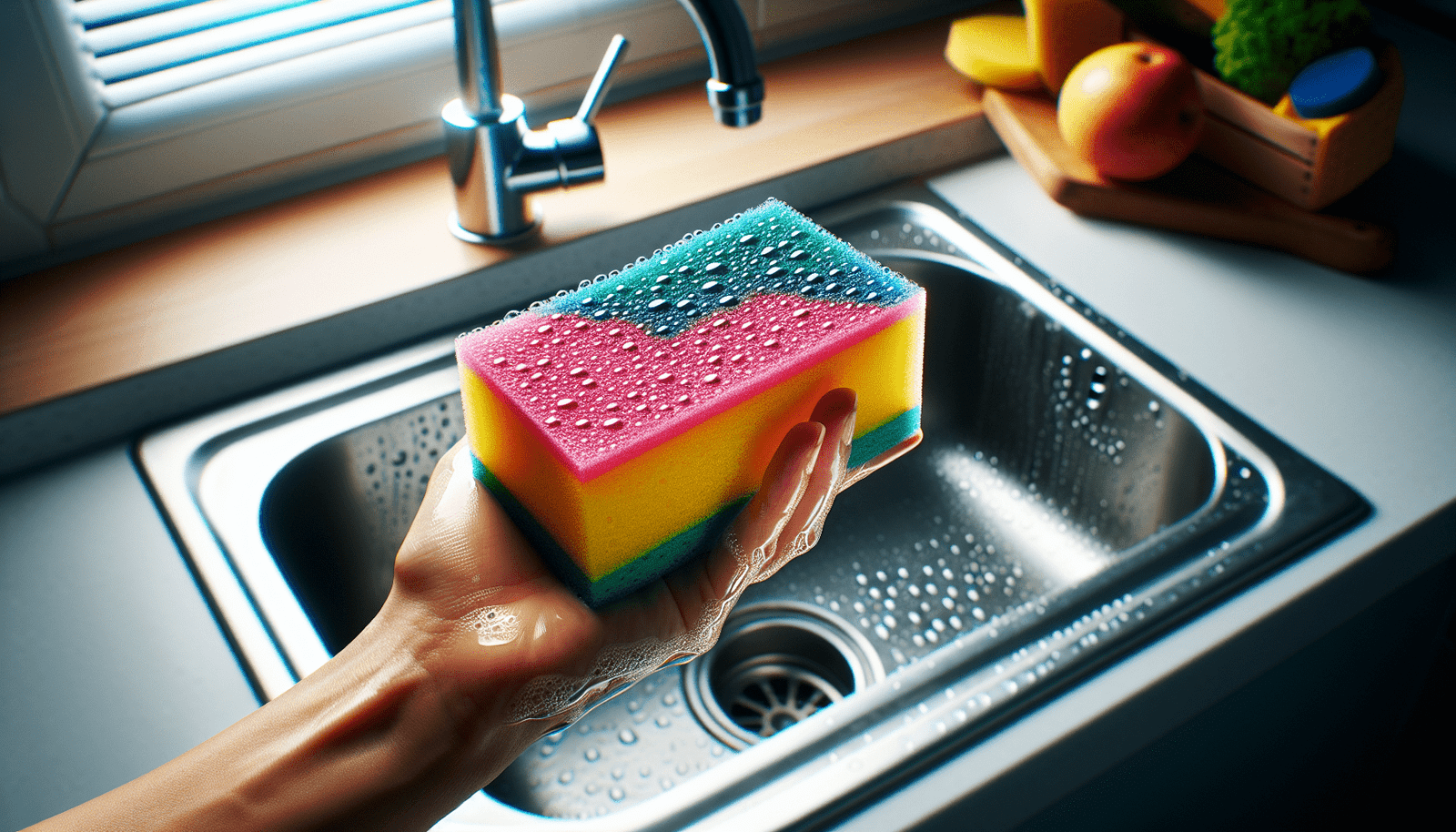How Do I Properly Clean And Sanitize Kitchen Sponges?
How do I properly clean and sanitize kitchen sponges? You might be surprised to learn that kitchen sponges can harbor harmful bacteria if not properly cleaned and sanitized. But don’t worry, I’m here to help you navigate the best practices for keeping your kitchen sponges clean and germ-free. Let’s dive into the details!
Why is it important to clean and sanitize kitchen sponges?
Cleaning and sanitizing kitchen sponges is crucial to prevent the spread of harmful bacteria in your kitchen. Sponges are the perfect breeding ground for bacteria, as they are often damp and come into contact with food particles. By regularly cleaning and sanitizing your kitchen sponges, you can reduce the risk of cross-contamination and keep your family safe from foodborne illnesses.
You don’t want to introduce harmful bacteria into your kitchen
A dirty sponge can transfer harmful bacteria from one surface to another, contaminating your countertops, dishes, and utensils. By keeping your kitchen sponges clean and sanitized, you can help reduce the risk of foodborne illnesses and maintain a healthy environment in your kitchen.
Regular cleaning and sanitizing can extend the lifespan of your sponges
Properly cleaning and sanitizing your kitchen sponges can also help extend their lifespan. Bacteria can break down the material of the sponge over time, causing it to deteriorate more quickly. By taking care of your sponges, you can ensure that they last longer and continue to effectively clean your dishes and surfaces.
How often should I clean and sanitize my kitchen sponges?
Regularly cleaning and sanitizing your kitchen sponges is important to keep them free from harmful bacteria. It is recommended to clean and sanitize your sponges at least once a week, or more frequently if they come into contact with raw meat or other high-risk foods.
Once a week is the minimum recommendation
While cleaning your sponges once a week is the minimum recommendation, you may need to clean them more frequently depending on how often you use them and what types of foods they come into contact with. It’s always better to err on the side of caution and clean your sponges more often if you’re unsure.
Pay attention to the smell of your sponges
If your sponges start to develop a foul odor, that’s a sign that they need to be cleaned and sanitized immediately. The smell is often an indicator of bacteria growth, so don’t ignore it. Trust your nose and take action to keep your kitchen sponges fresh and clean.
What is the best way to clean kitchen sponges?
There are a few different methods you can use to clean and sanitize your kitchen sponges. Each method has its pros and cons, so it’s important to find the one that works best for you. Here are a few popular methods for cleaning kitchen sponges:
Using the microwave method
One of the most popular methods for cleaning kitchen sponges is the microwave method. To clean your sponge in the microwave, wet it thoroughly and then place it in the microwave for 1-2 minutes on high heat. The heat from the microwave will help kill bacteria and sanitize the sponge.
Soaking in a bleach solution
Another effective method for cleaning kitchen sponges is soaking them in a bleach solution. Mix 3/4 cup of bleach with 1 gallon of water and soak your sponge in the solution for 5 minutes. Be sure to rinse the sponge thoroughly after soaking to remove any residual bleach.
Running through the dishwasher
If you have a dishwasher, you can also clean your kitchen sponges by running them through a hot water cycle. Be sure to place the sponge in the utensil holder or on the top rack to prevent it from falling into the bottom of the dishwasher.
Using a commercial sponge cleaner
There are also commercial sponge cleaners available on the market that are specifically designed to clean and sanitize kitchen sponges. These cleaners can be a convenient option if you prefer a ready-made solution.
How can I extend the lifespan of my kitchen sponges?
Proper maintenance is key to extending the lifespan of your kitchen sponges. By following a few simple tips, you can keep your sponges in good condition and prevent them from becoming breeding grounds for bacteria.
Allow your sponges to dry completely between uses
One of the best ways to extend the lifespan of your kitchen sponges is to allow them to dry completely between uses. Bacteria thrive in damp environments, so by ensuring that your sponges are fully dry before using them again, you can help prevent bacteria growth.
Avoid using sponges on high-heat surfaces
High-heat surfaces can cause the material of the sponge to break down more quickly, reducing its effectiveness and lifespan. Avoid using your sponges on hot surfaces such as stovetops or in direct contact with hot pans.
Replace your sponges regularly
Even with proper care, kitchen sponges will eventually wear out and become less effective. It’s a good idea to replace your sponges every 2-4 weeks, depending on how often you use them. This will ensure that you always have a clean and effective sponge on hand.
In conclusion
Keeping your kitchen sponges clean and sanitized is an important step in maintaining a healthy and hygienic kitchen. By following the tips outlined in this article, you can ensure that your sponges are free from harmful bacteria and continue to effectively clean your dishes and surfaces. Remember to clean and sanitize your sponges regularly, pay attention to any foul odors, and use the method that works best for you. By taking care of your kitchen sponges, you can help create a safe and clean environment for you and your family.
